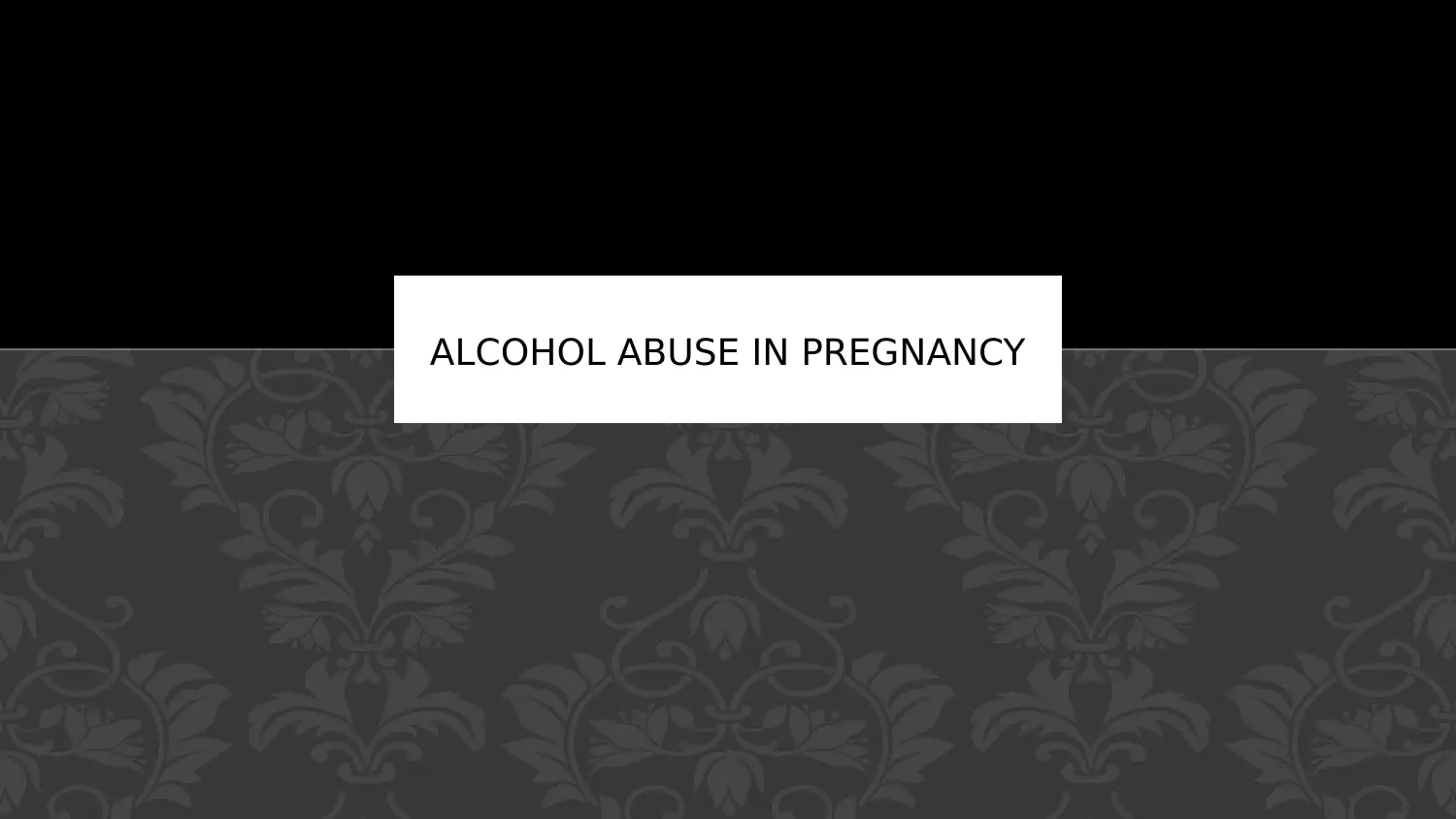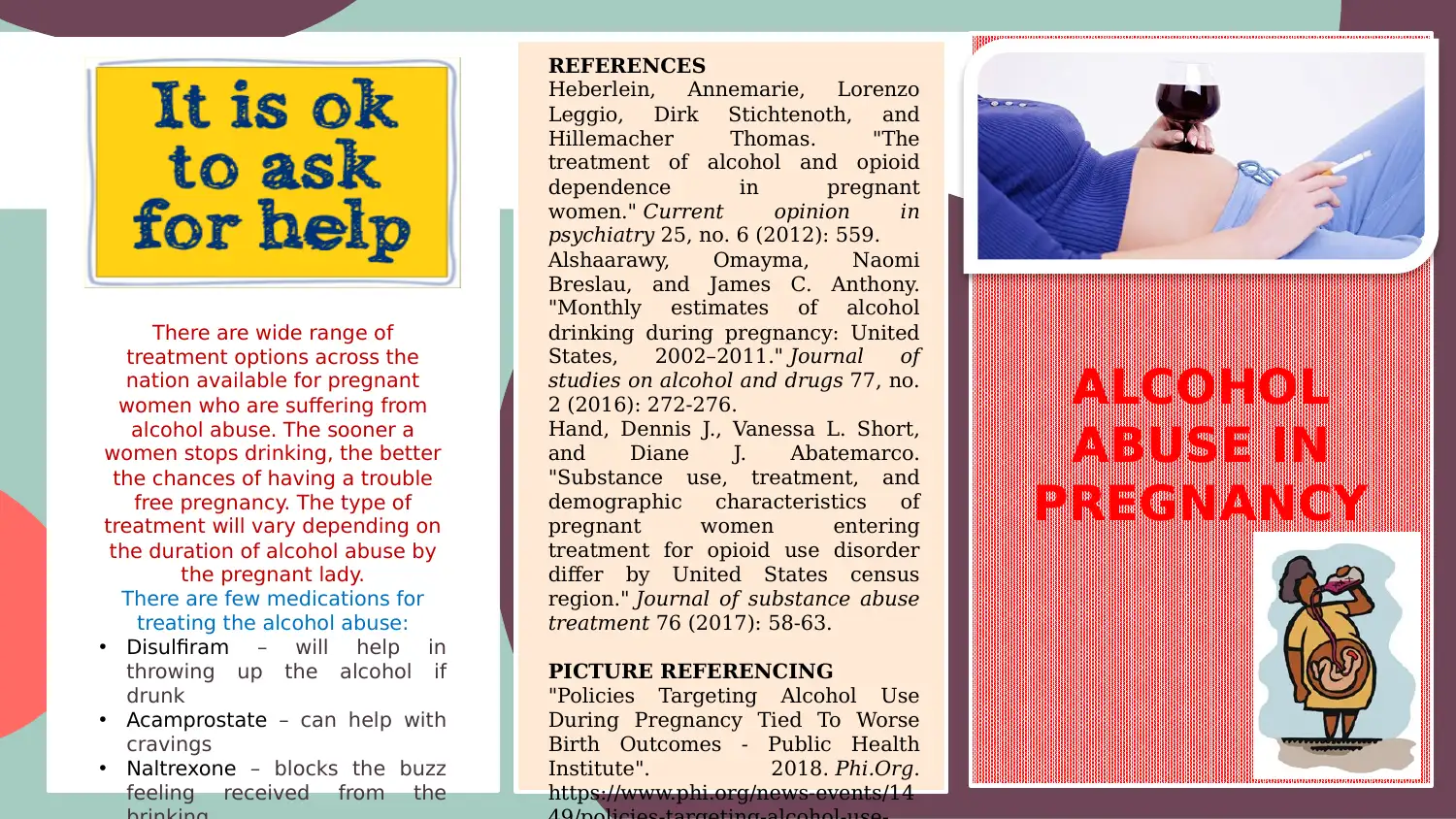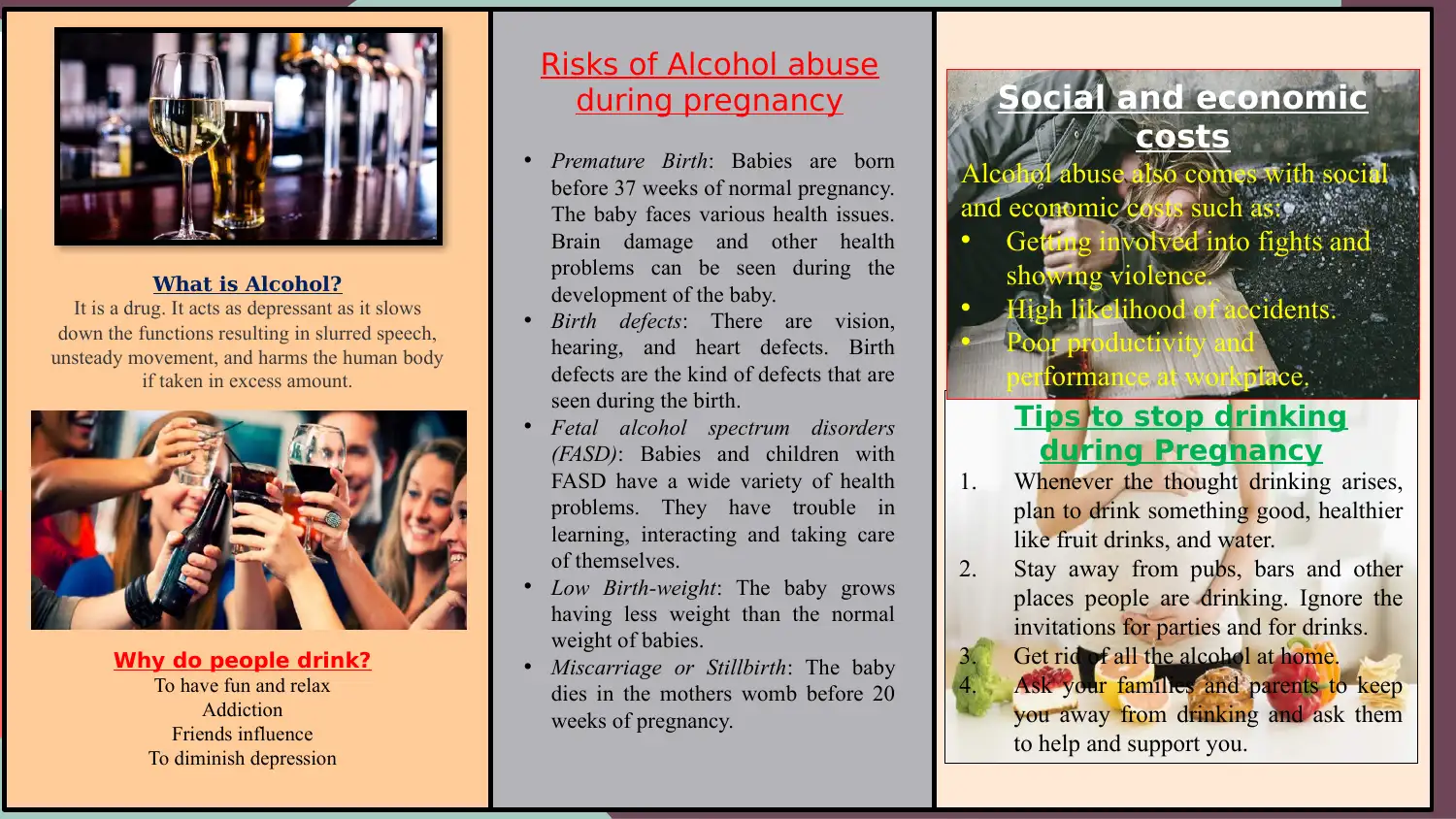Alcohol Abuse During Pregnancy: Risks, Treatment, and Social Costs
VerifiedAdded on 2022/09/17
|3
|596
|17
Report
AI Summary
This report examines the critical issue of alcohol abuse during pregnancy, detailing the potential risks to both the mother and the developing fetus. It highlights the various health issues that can arise, such as premature birth, birth defects (including vision, hearing, and heart defects), and fetal alcohol spectrum disorders (FASD), which can lead to learning difficulties and behavioral problems. The report also covers the impact of low birth weight and the possibility of miscarriage or stillbirth. Furthermore, it provides insights into the treatment options available, including medications like Disulfiram, Acamprostate, and Naltrexone, and suggests practical tips for pregnant women to stop drinking. The report also addresses the social and economic costs associated with alcohol abuse, such as increased violence, accidents, and decreased workplace productivity. The report provides references to support the information provided.
1 out of 3










![[object Object]](/_next/static/media/star-bottom.7253800d.svg)